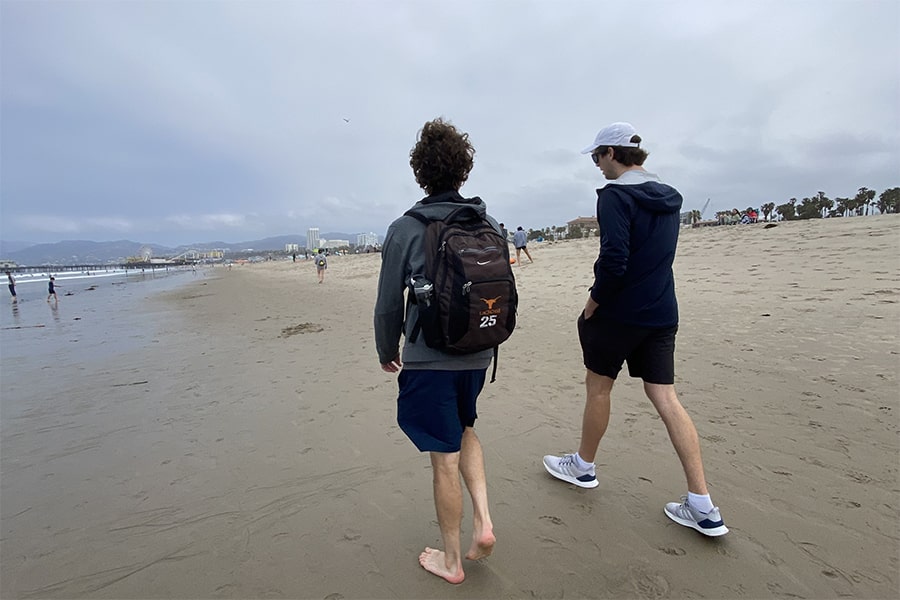Students navigate study abroad during post-COVID-19 transition
July 22, 2021
As Audrey Black boards a plane for her five day trip to Paris, she reminisces on her time studying abroad in Barcelona. From slow vaccine rollouts to empty European streets, she experienced the country in the purest form: as a local.
“I feel like no one’s ever going to be able to study abroad in the pandemic again and … as privileged as it sounds, it was the most authentic experience because no other tourists are there,” Black said. “I feel like I got a really unique experience in (studying) abroad.”
Every year, more than 4,400 students participate in UT’s study abroad programs. For students like Black, the transition into a post-COVID-19 life while making the difficult decision to pursue education in another country was not an easy one.
“I was one of two people in Barcelona for my study abroad, and … Barcelona is the most popular study abroad spot,” Black said. “I had a bunch of people that originally went to all our prep stuff for study abroad and all of them, just one by one, dropped out.”
Kathleen Murray, a theater and dance senior, decided to attend the UTNY summer program despite the unknown circumstances.
“Everyone’s very, very diligent about being vaccinated and going out when you’re only vaccinated,” Murray said. “You cannot get into the clubs in New York unless you have your ID obviously, and you have proof of vaccination. It’s strange having to carry around your ID and your vaccine card when you go out.”
Arriving in Los Angeles on May 28 as part of the 61-student UTLA cohort, UT alum Austin Azar made the 1,380 mile trip from Austin after receiving a scholarship that heavily influenced his decision.
”I don’t know who all might be vaccinated, who might not,” Azar said. “I think there’s a frustration of not being fully out of it yet, feeling like we don’t need to have these restrictions, and we still do in some cases.”
However, the transition seems almost seamless to Azar who has celebrated a roommate’s birthday at a bar and explored Los Angeles.
“I’m trying to be more patient about knowing that it’s a slow process, but it is weird, like getting back to hugging people when you see them,” Azar said. “Some people still either prefer not to make any physical contact, or just fist bump or things like that. It’s weird social dynamics of having to figure all that out.”
As of mid-July, Los Angeles has reverted back to their mandatory mask mandate after a few weeks of maskless activities.
“It definitely feels like we are going backwards, but at the same time, the data points to almost all hospitalizations being unvaccinated people, so that at least feels like progress in the sense that the vaccinated population is generally safe,” Azar said.
Despite remote workplaces and internships, Black, Murray and Azar received a once in a lifetime experience during a global crisis.
“Honestly, the pandemic, as hard as it was, it also gives me hope for society,” Black said. “I feel like we kind of banded together and learned in certain ways how to respect other people’s health and right to health.”
Editor’s note: This story was published as part of the Helen M. Powell Traveling Fellowship.











